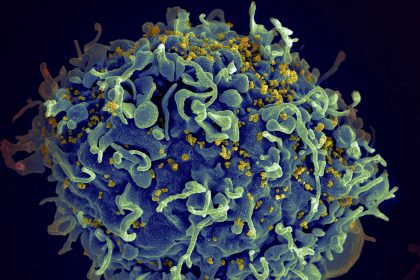EPA Sets Tougher Limits on Gas Used to Sterilize Medical Devices

WASHINGTON — The Environmental Protection Agency on Thursday finalized tougher restrictions on ethylene oxide, a cancer-causing gas commonly used to sterilize medical devices.
The new standards specifically target commercial sterilization facilities. The agency called them “the strongest measures in U.S. history to reduce emissions of EtO,” which it described as “one of the most potent” of cancer-causing chemicals.
By mandating that these facilities install “proven and achievable” air pollution controls, the EPA says emissions of EtO and other toxic emissions could be cut by more than 90%.
“This final rule to sharply cut toxic emissions of ethylene oxide responds to the ambition set forth by President Biden’s Cancer Moonshot,” EPA Administrator Michael Regan said in a written statement.
“We have followed the science and listened to communities to fulfill our responsibility to safeguard public health from this pollution — including the health of children, who are particularly vulnerable to carcinogens early in life,” he said.
“We’ve arrived at a historically strong rule that will protect the most exposed communities from toxic air pollution while also ensuring that there will be a process that safeguards our nation’s critical supply of sterilized medical equipment.”
U.S. Secretary of Health and Human Services Xavier Becerra has long worked to warn people of the dangers of EtO, and said the department and the EPA will “continue to work together … to achieve our shared goals of lowering EtO exposure while also mitigating potential risks of medical device shortages.”
The new rules will:
- Establish standards for currently unregulated emissions, such as building leaks (“room air emissions”) and chamber exhaust vents, to reduce cancer risk and account for technological developments in pollution control.
- Strengthen standards that are on the books for sources such as sterilization chamber vents and aeration room vents.
- Require continuous emissions monitoring and quarterly reporting for most commercial sterilizers that will provide communities, states, tribes and local governments, as well as the EPA, with data to ensure EtO emissions are not entering the outdoor air.
- Ensure that sterilizers are subject to emission standards during periods of startup, shutdown and malfunction so there is continuous clean air protection.
The EPA is also working to strengthen standards to reduce EtO and other toxic pollutants from chemical plants.
Other actions to address EtO emissions and advance EtO research include:
- Investigating additional sources of EtO (e.g., stand-alone warehouses) and opportunities for emissions controls.
- Enforcing existing regulations as appropriate.
- Conducting research to better understand and measure EtO.
In finalizing this rule, the EPA said it considered the latest data and science, and also engaged in extensive outreach to communities and stakeholders to ensure there was meaningful participation during the public comment period.
In addition to input gathered at public hearings and during webinars, the agency said it considered more that 40,000 comments that were submitted to the online rulemaking docket.
The final rule will address emissions at nearly 90 commercial sterilization facilities that are owned and operated by an estimated 50 different companies.
Dan can be reached at [email protected] and @DanMcCue

























